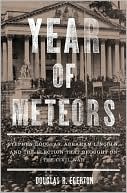The Very Important Publisher (or Agent)
This person is easily spotted because he’s one of a small
number of people wearing a well tailored suit. He can usually be observed in one
of two modes: striding purposefully down an aisle en route to his next meeting
(careful to arrive a few minutes late) or standing in
the middle of a busy aisle talking on his cellphone. There are of course also
Very Importants who are female. Their suits are even better tailored. They speak more softly on their cellphones but you may hear a discreet rattle of their chunky gold jewelry.
The Editor
Editors come in all shapes and sizes, and can usually be
seen flitting around from booth to booth chatting with their counterparts at
other houses. They chat with agents too, but chewing the fat with their
colleague/competitors is actually their favorite thing about BEA, because they
get to do it so rarely at other times. The Editor will stand around his house’s booth for 10
or 15 minutes to show that he's pitching in, perhaps halfheartedly waving a couple of catalogues at passersby. Sometimes he will be actively chased off
by salespeople or publicists who are actually trying to do business in the
booth; otherwise he’ll wave the catalogues until he gets bored (this takes 15 to 20 minutes). Then it’s off for “a meeting in the Rights Center,” which lasts
12 minutes (tells Russian publisher reluctantly, “I don’t think the KGB Cookbook
would work for us”). The Editor then takes a meandering course back to the
booth, stopping to visit comrades at 5 or 6 houses, pause for coffee, maybe
grab a hot ARC from Random or Little, Brown. Finally, he’s back at the
booth—whoops, time for that lunch meeting.
The Schnittman
No publishing conference is complete without this person, who looms above the fray peering down on it through his black plastic glasses. He is easy to find, for he will appear on half a dozen panels on The Future of Something, lobbing provocative remarks that will light up Twitter like a pinball machine. If you see an individual lobbing equally provocative remarks but lacking the distinctive black glasses, back away very quietly. You may be looking at a Charkin.
The Swagaholics
These are frequently middle–aged couples who roam the floor
together, towing a bulky roller suitcase that kneecaps, en passant, those
attendees who don’t remember to watch out in the crowded thoroughfares. For some reason they often wear khaki shorts, floppy hats or other garments that suggest they're on safari, or a botanical field trip. The
Swagaholics may be booksellers or librarians; some, I have concluded, are are
just people who have like Free Stuff. Each of them grabs handfuls of the ephemera
that BEA generates in such enormous quantities: pens, pins, jump drives,
T-shirts, keychains, posters--and most prized, but alas, heaviest, galleys—and stows it a tote bag (periodically emptied into the rolling suitcase). I can never tell whether these
folks actually read or use any of the stuff they collect; by the second
afternoon of the show they have a look of grim determination, but they’re
damned if they’ll leave the Javits until the rolly bag is full…
The Wannabe Author
Important note for younger book business staffers: Watch out
for anyone whose badge says AUTHOR but does not feature the name of a
publishing house. This might well be a self-published author, or more
dangerously, someone who has bought a day pass in the hope of pitching his/her
manuscript to editors on the show floor (in itself, a warning sign of poor
reality testing). Often he’ll have the title of his book on the badge as
well, which can make it easier to tell—something like this:
CHARLES "KIP" KLINGENDORFFER
AUTHOR
ANGELS IN MY ASPARAGUS PATCH
He will lurk near the booth, the whites of his eyes
slightly too visible, waiting for a moment to buttonhole someone on the
publisher’s staff. If you see one of these nearby, shifting from foot to foot,
it’s the cue for “Can I get anyone a coffee?” Take off for the remotest Starbucks in the hall and don’t
hurry coming back.
The First-Time Author
Distinguished from the Wannabe by the key fact this author
has a book coming out from an established publishing house; maybe the F.T.A. is
even lucky enough to have a “buzz book” or be on a panel. The First Time Author will
typically blink a lot, looking from side to side with a slightly dazed
expression like a newly hatched chick. She is excited to be at this much-touted
conference but confused about what is going on, where she should go or what she
should do. The whole thing seems rather…chaotic. After the excitement of her
panel discussion wears off the FTA begins to absorb the chilling fact of just
how many other books are being published in the same season, the same month,
even the same week as hers. You
may see the F.T.A, after her second afternoon on the floor, hastening toward the
exit, her blinking now replaced by wide-eyed alarm.
The Random Peddler
This person is sort of Yin to the Carrot’s yang (see below).
In addition to people peddling books as if they were some other kind of
product, there are always a few entrepreneurs who come to BEA to peddle
something totally un-booklike—think flashlights, wiper blades, pet supplies.
This year my eye was caught by a booth selling, I think, molded foot insoles.
It seemed completely off the wall, until I realized, after 16 hours of marching
up and down the concrete floors of the Javits, everyone’s feet are killing
them! (Have a thought for the poor Swagaholics, whose rolly-bag is full and whose bulging tote bags are now weighing them down like lead.)
The Carrot
I’m not being figurative here. The first time I attended
Book Expo was so long ago it was called ABA, the American Booksellers
Association (pause to shout out to my fellow curmudgeons who don’t believe that
mashing together a non-word like “Expo” with a perfectly good word like “Book” is
an improvement on either one, nor that putting the mashup next to “America” can
turn the latter into an adjective. But I digress.) Newly employed by an incredibly literary small press that
published things like poetry in translation, classic reprints, and
magic-realist fiction, I went off to the old Washington convention center full
of zeal to spread the word about our brilliant list. I was somewhat dismayed to
find our booth—it was a table, really—in the most distant reaches of the
exhibit hall, where only the most dedicated, desperately bored, or navigationally
challenged attendees were ever likely to tread.
As a house with little seniority and less clout at the show, we
had been relegated to the backwaters with other unfavored exhibitors. Our neighbor
on one side was a guy who sold self-hypnosis tapes—Lose Weight While You Sleep,
etc. On the other was the author of a self-published guide to juicing, who had
hired someone to walk up and down the aisles dressed as a carrot. Needless to
say, we weren’t selling a whole lot of our Turkish poetry and essay collections;
few likely customers for our wares made it past the carrot.
The urge to market books or other “product” by dressing
shills in outlandish costumes seems to be a constant of human nature, for I
have never attended a BEA when there wasn’t at least one person in a foam suit
or other cartoonlike getup. This year I spotted someone who I thought at first
was a giant banana, but turned out to be embodying Mr. Dummy of the Dummies
guides. There were also several aggressively cheerful youngsters who were
dressed as fairy tale characters, or citizens of Dogpatch, or something else of
a rustic nature, promoting I’m not sure what.
I realize I am
being figurative—not metaphoric, but synecdochic—in saying you can count on
meeting a Carrot at BEA2012. Maybe all trade shows are like this. If I went to the Consumer Electronics show, would
I bump into people dressed as Intel chips or iPods? I suppose in some dystopian
future where “books” have been subsumed by “devices,” I may get to find out.











